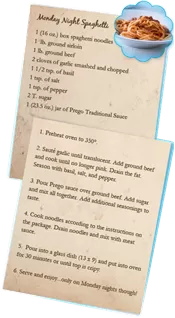When people have multiple things competing for their time, they often turn to templates and re-use libraries as a way to lighten the proposal workload. The problem is that they lighten the workload by reducing your win rate. And if you’re making smart bid decisions, the lost revenue will always be greater than the investment in doing proposals that are customized around your win strategies. People try to convince themselves that if they design their templates just right, they can beat the odds. But they can’t because they haven’t thought through what it takes to win and how that impacts the proposal.
This issue does not impact all businesses the same. Templates are more dangerous for some offerings and markets than others. You can use this model to determine whether templates will do more to help or hurt your business.
Luckily, there are alternatives to using templates or creating re-use libraries. They provide the critical inspiration and acceleration that people crave, they just do it in ways that can improve your win rate instead of destroying it:
- The hardest part of winning proposals is not writing them. It's figuring out what your win strategies should be and then articulating them in writing. A lot of proposal failures are really bid strategy failures. A lot of proposal delays are really a result of rethinking your win strategies. Creating a bid strategy re-use library is an excellent way to inspire and accelerate your proposal efforts.
- People spend far more time figuring out what ingredients should go into their proposal writing than they spend actually writing. Writing and re-writing until you run out of time is a high-risk approach. Recycling a proposal that was optimized to win in a different context is a sure way to reduce your win rate. Proposal Recipes can accelerate the process of figuring out what should go into your proposals, and help you create a proposal that is optimized to win instead of one that is guaranteed to be not optimized for your current circumstances.
- The reasons you are having difficulty figuring out your proposal story are things that templates won't help with and recycling past proposals will get wrong. Instead of templates, maybe you just need to start your proposals with the right information. That's another problem templates won't solve for you.
- Figuring out your win strategies requires having a corporate strategic plan that guides your positioning. What many proposal teams do is fill a strategic planning void, reinventing the company as they go along. Your proposals will go quicker if you start with a corporate strategic plan that focuses your thinking.
- Instead of a proposal problem, you might really have an offering design problem. When you confuse the two, you can get caught in a proposal death spiral. Setting up a process to design your offering separate from the act of writing about it can help you avoid getting caught in the proposal death spiral.
The bottom line is that unless you are bidding to the same RFP instructions and evaluation criteria with the same customer concerns, if you care about winning you should never recycle proposal narratives. Instead of building a labor-intensive proposal re-use library or trying to somehow create a template that defies the odds, you can still deliver the inspiration and acceleration people crave and help them win instead of lowering their odds.



Let's discuss it!
You can post now and register later. If you have an account, sign in now to post with your account.
Note: Your post will require moderator approval before it will be visible.